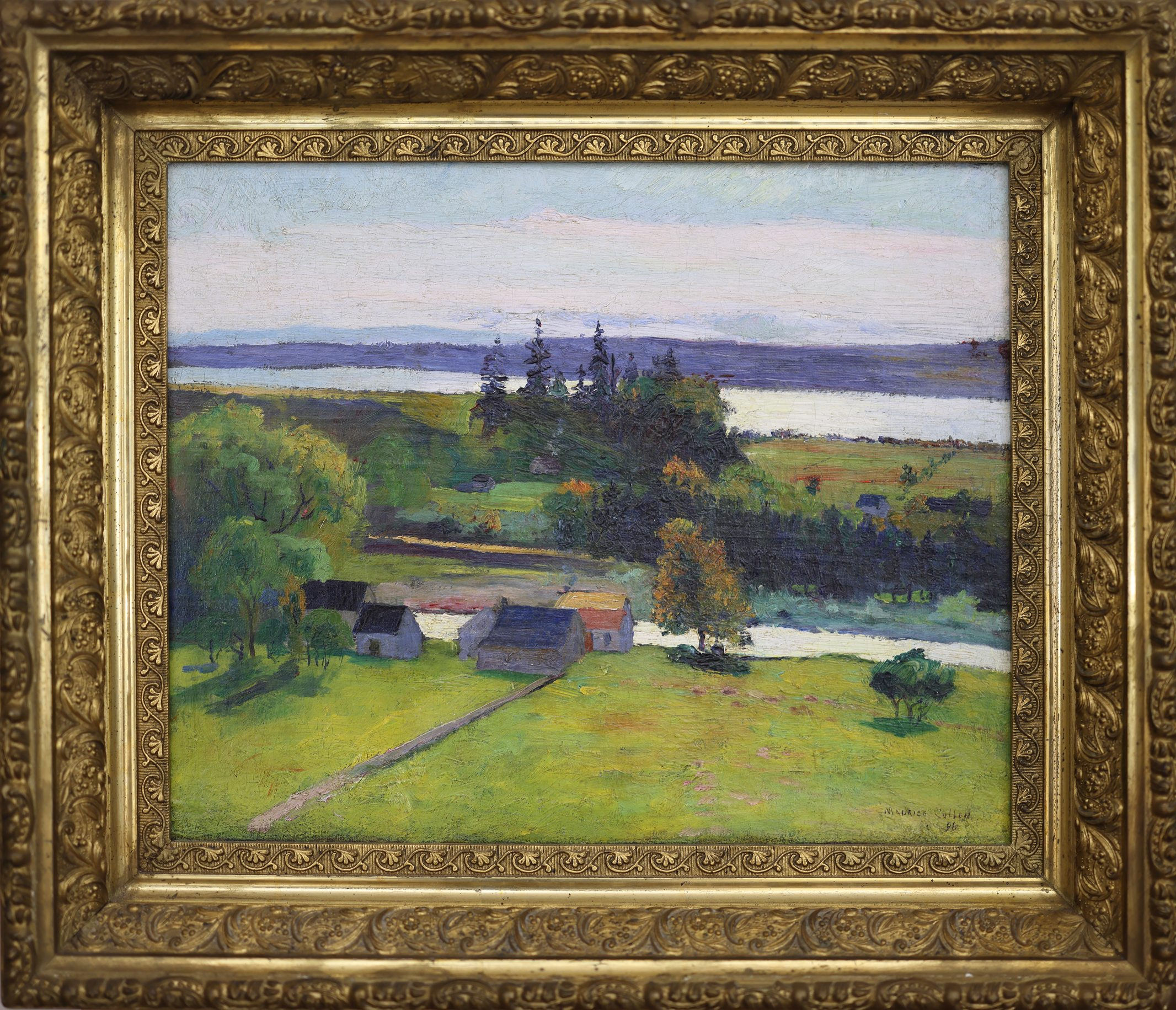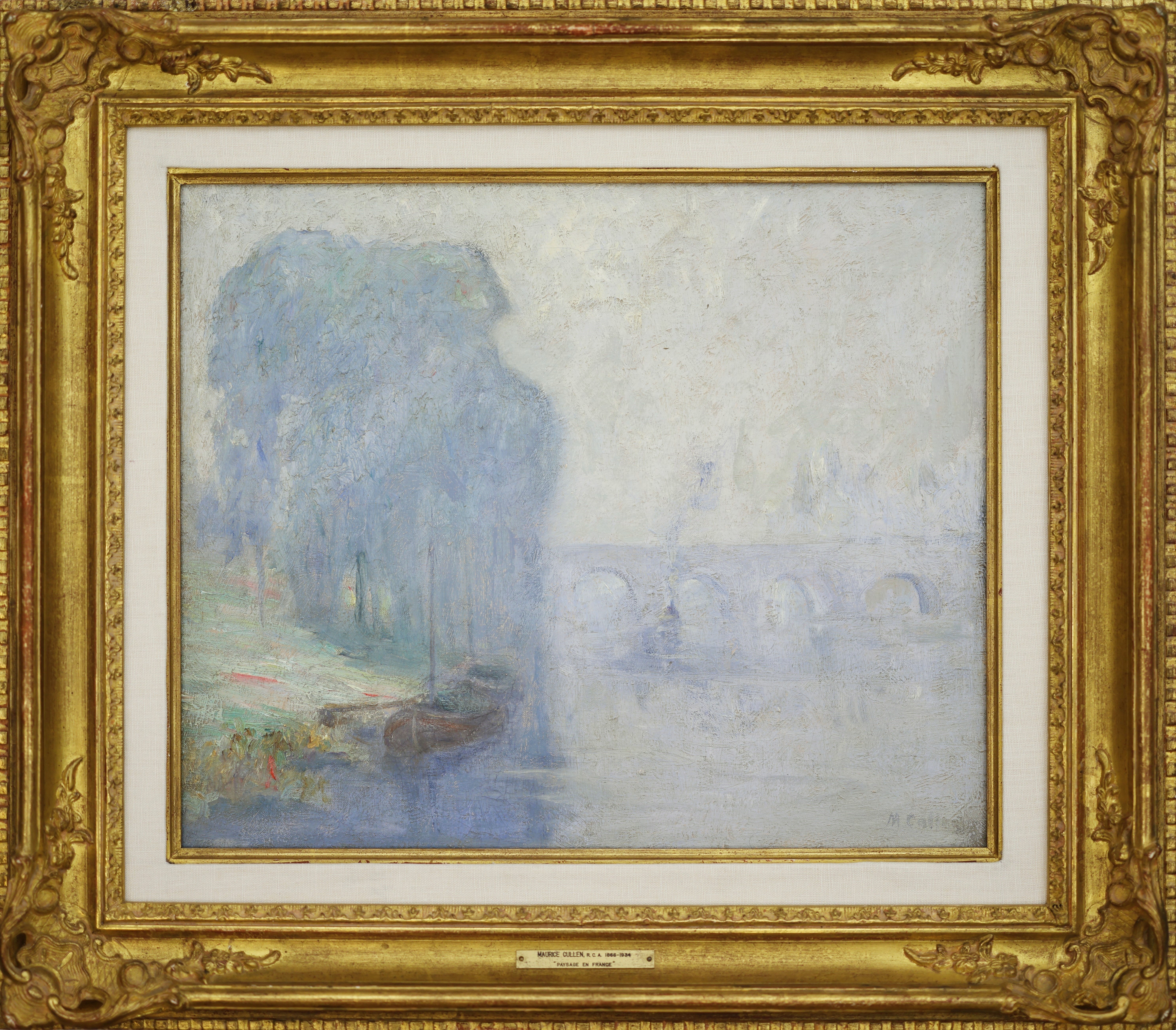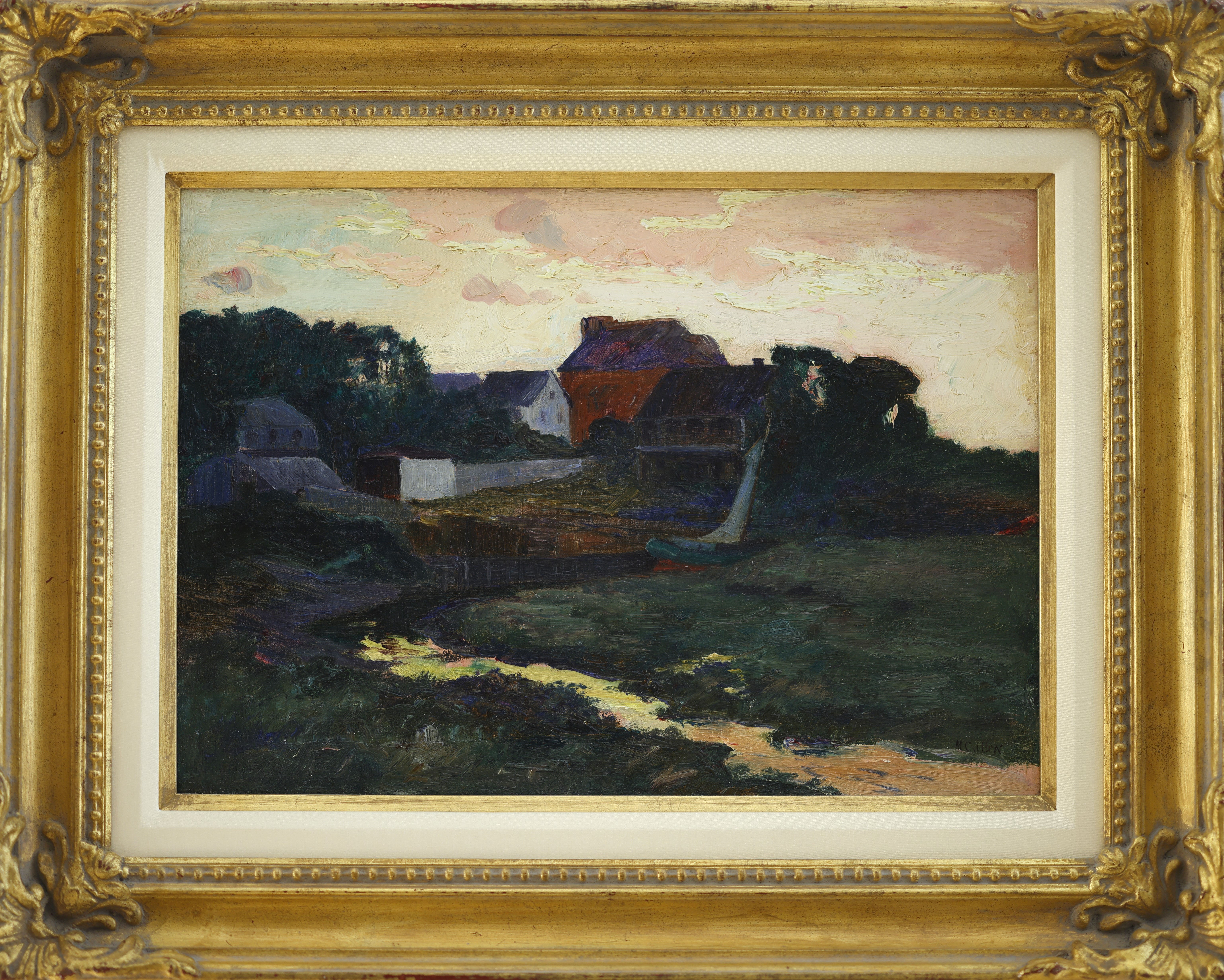“One justification for life is the love of beauty.”
Maurice Cullen
Maurice Galbraith Cullen: Father of Canadian Impressionism
Early Life and Education
Maurice Galbraith Cullen (born June 6, 1866, St. John's, Newfoundland – died March 28, 1934, Chambly, Québec) was a seminal figure in Canadian art, renowned for his role in establishing Canadian Impressionism. Raised in Montreal, Quebec, Cullen began his artistic training in sculpture under the guidance of Louis-Philippe Hébert at the Conseil des Arts et Manufactures and later at the Monument National.

Maurice Cullen; Riverside Farm, 1896


Parisian Studies and Artistic Shift
In 1889, Cullen traveled to Paris to continue his studies. He enrolled at the École des Beaux-Arts, studying under Jean-Léon Gérôme and at the Académie Julian. Initially intent on sculpture, Cullen was inspired by French Impressionists, especially Claude Monet, leading him to shift his focus to painting. By 1895, he had become the first Canadian elected as an associate of the Société Nationale des Beaux-Arts, marking his transition and dedication to Impressionism.

Maurice Cullen; Misty Bridge
Canadian Career and Contributions
Returning to Montreal in 1895, Cullen shifted his artistic lens to the Canadian landscape, particularly Quebec’s winter scenes and urban vistas. His works, such as ice harvest scenes with horse-drawn sleighs and luminous depictions of the Laurentians, are celebrated for their depiction of northern light and crisp atmosphere. He was a key figure in the progressive Canadian Art Club and his work "Été" was purchased by the French Government, now housed at the Musée de Pithiviers.

Maurice Cullen; North Cache River, Lake Tremblant
World War I and Legacy
During World War I, Cullen served as a war artist with Canadian forces, achieving the rank of Captain. This period highlighted his versatility in capturing both the tranquility of Canadian landscapes and the stark realities of war. Cullen's influence extended through his stepson, Robert Wakeham Pilot, and continued to inspire future generations, including the Group of Seven.

Maurice Cullen; Light Effects, Beaupre
Retrospectives and Honors
Maurice Cullen was honored with multiple retrospectives, notably by the Quebec government in 1930 and posthumously by the Watson Art Galleries in 1934. His legacy is preserved in major collections like the National Gallery of Canada and the Montreal Museum of Fine Arts.
Conclusion
Maurice Cullen's mastery in blending French Impressionist techniques with the unique Canadian landscape secured his status as a cornerstone of Canadian cultural heritage and a master of landscape painting. His contributions are regularly celebrated in exhibitions, reflecting his enduring impact on Canadian art.




